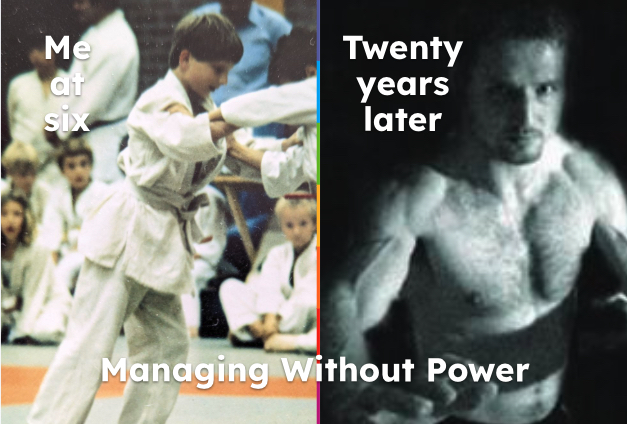I was raised by a lesbian couple from the age of six. That affects how I look at the world, and how I manage teams. In particular, it made me more conscious about biassed language at work, and more importantly how you can avoid it.
It's normal in most organizations to say a woman demonstrates ‘male leadership behaviors’ when she’s tough and dominant, and to say a man demonstrates ‘female leadership behaviors’ when he's empathic and caring.
My parents divorced when I was five. My mother discovered she was bi-sexual. A year later she met the girlfriend she lived with for the rest of her life. They raised us together. The picture is me at 22, my mother on the left, her girlfriend on the right. My sister and I referred to my mother’s girlfriend as our ‘reserve mother’. But she’s very much like a real mother. Nowadays she’s the grandmother of my children.
I remember people often asked me “Which of the two is the man in the relationship?”. It’s only about seven years ago, when I was nearing 40 years of age, and started leading initiatives on diversity and inclusion, that I realized how offensive this question is. And a stupid question too: there is no man. People use labels to organize the world so it makes sense to them. Gender labels are part of that.
We cling to these labels so much that we even apply them where they don’t make sense. We do it all the time: it's normal in most organizations to say a woman demonstrates ‘male leadership behaviors’ when she’s tough and dominant, and to say a man demonstrates ‘female leadership behaviors’ when he's empathic and caring. It’s actually offensive: it implies it’s not manly to be empathic and caring, and not female to be strong and dominant.
Our biases are hidden in the language we use, even in the context of advocating for equality. For instance, when we encourage women to use their ‘female qualities’ to be better leaders, we reinforce the biases that also lead to women being judged for being ‘too manly’. Our organizations would be more inclusive, if we could eliminate all biassed language. One simple question helps with that: Would I have used the same language if I were speaking to…..? …..if I were speaking to a man? …..if I were speaking to a white person? …..if I were speaking to a straight person? .....etcetera. If the answer is no, the language is likely to be biassed.
Biassed language does more damage than you think, and it’s more common than we realize. It minoritizes groups of people, and makes you a less inclusive and thereby a less effective manager and leader. The simple act of asking yourself a few times per day “Would I have used the same language if I were speaking to…” is one of the easiest and most valuable things you can do to become a better manager, leader, and person.
The book Managing Without Power helps you create organizations where all types of people are their best self and work well together. The book is available on all local Amazon stores. Curious about our trainings Managing Without Power for managers and leaders? Check managingwithoutpower.com.



